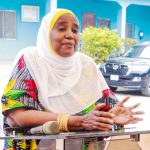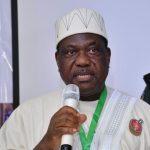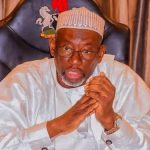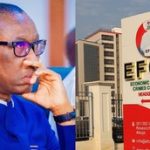In writing this opinion, let me be clear that I am an incredible Nigerian optimist who believes that a better nation is possible; that Nigeria can be great with the right leadership and right system in place. What we suffer are both leadership and systemic failures.
A big plague on Africa, Leadership failures and failed opportunities had led to disappointments and despondency making some young minds out of frustration to conclude that Nigeria is not working, hence the growing agitation for separation. Having fought a bitter civil war to keep Nigeria One, I worry whether balkanization of Nigeria is a preferred option.
I fear that in balkanization we may end up creating pockets of fiefdoms and war lords eating up each other. Examples abound. What Nigeria needs is a reset. To reset Nigeria, we must reset the South East by solving the lingering Igbo question. A Nigeria that is fair to all. Almost all the major ethnic groups in Nigeria had at one time or the other felt frustrated and agitated for separation.
The Hausa Fulani were the first to threaten ‘araba’ and called for the creation of Arewa nation. As a matter of fact, it was a Northern leader that emphasised that “there is no basis for Nigeria’s unity”. The Yoruba nation campaigned for Oduduwa Republic. It was the Western Region that insisted that the Right to Secession should be inserted in the 1960 Constitution.
The foremost Yoruba leader had famously referred to Nigeria as a geographical contraption by the British fused together to serve British economic interest. Various Yoruba activists in recent memory became famous by leading the Yoruba agitation for independence;
I recall Chief Gani Adams and his band of supporters doing in the South West exactly what IPOB is now doing in the South East. I recall Sunday Igboho fighting for the freedom of the Yoruba nation and still doing so. The minority ethnic groups of Niger Delta, particularly the Ijaw nation led by Isaac Adaka Boro led a revolt against the Nigeria state.
His memory is still revered in Ijaw land with streets and public buildings named after him. Ateke Tom, Asari Dokubo, Tompolo and others fought for self determination and economic freedom for their people. The Igbo nation led by then Col Chukwuemeka Odumegwu Ojukwu fought for the East to break away from Nigeria.
The Igbo struggle was the most notable because after suffering pogrom, the Independent State of Biafra was declared. A three-year civil war was fought between Nigeria and the Biafra State. At the end of the war, the will and might of the Nigeria state prevailed, but at great cost to both sides.
Over three million lives were lost in what historians described as Africa’s most brutal civil war. The then Head of State, General Yakubu Gowon in his wisdom declared “No Victor, No Vanquished” even though we knew who the vanquished were. To reintegrate the Igbo people, he introduced the three “Rs: Reconstruction, Rehabilitation and Reconciliation”.
I guess in all of the Rs, what was not achieved was true reconciliation, because Nigeria still views the Igbo with pettiness, vindictiveness, suspicion and marginalisation. Consequently, the new generation of Igbo rightly or wrongly and despite their individual successes, collectively do not feel accommodated in Nigeria.
There is this feeling of conspiracy against the Igbo, that Nigeria is still at war with the Igbo and that the Igbo are conquered people who must never be allowed to attain certain heights.
This reality gives the oxygen for the renewed agitation for Biafra by the new generation of Igbo who didn’t see the civil war to know that war is ugly. Assuming Nigeria had taken advantage of our diversity and built a strong nation where everyone is equal and treated without discrimination, there would have been no need for agitation or further separatist agenda.
I recall at the onset of MASSOB led by Ralph Uwazuruike when he went to Ojukwu for consultation. The veteran war lord who fought for Biafra had admonished him to agitate as much as he could but must do so without violence.
I believe that advice was well taken by MASSOB leadership hence despite all provocations by the Nigerian state; MASSOB encouraged only passive resistance in their struggle to highlight the Igbo plight. The Indigenous People of Biafra (IPOB) is a break-away faction of MASSOB. The group is led by a British activist Mazi Nnamdi Kanu who advocates for Biafra.
His approach was no doubt a radical shift from Uwazurike’s. In 2022 Kanu was arrested in Kenya and brought back to Nigeria to face treasonable charges. The case has gone from the High Court to the Supreme Court which though held that his extraordinary rendition was illegal but that his trial on treasonable charge could continue.
Since 2022, Kanu has been held under the custody of the Department of State Services (DSS). His trial has not made any progress partly because the Federal Government is not diligent in prosecuting his trial. Today, Mazi Nnamdi Kanu is regarded as a prisoner of conscience and the face of the Igbo struggle.
His supporters and some fringe criminal elements had hidden under the cover of his detention to wage economic warfare against the South East through indiscriminate order of sit at home (Holy Monday or Sabbath Monday); they have caused violence and sabotaged public and security installations. No matter where you stand on the issue, hate him or love him Kanu’s detention is part of the problem if not the problem of insecurity in the South East.
For the avoidance of doubt, let me restate that the continued detention of Nnamdi Kanu, the IPOB leader, by the DSS has become a festering sore, exacerbating tension in South East Nigeria. As the region teeters on the brink of chaos, it’s imperative to reconsider Kanu’s imprisonment and explore the benefits of his release.
In considering the plea for his release let us bear in mind that all of the enumerated agitations, including the civil war ended up in dialogue and on a round table. In this very case, dialogue is not foreclosed and can still be explored.
It is not for nothing that the South East Governors who bear the burden of insecurity have called for his release; Ohanaeze Ndi Igbo had severally urged for his release, the South East National Assembly Caucus has also pleaded for his release. Many opinion leaders while acknowledging his mistakes had thought it wise to urge for his release.








